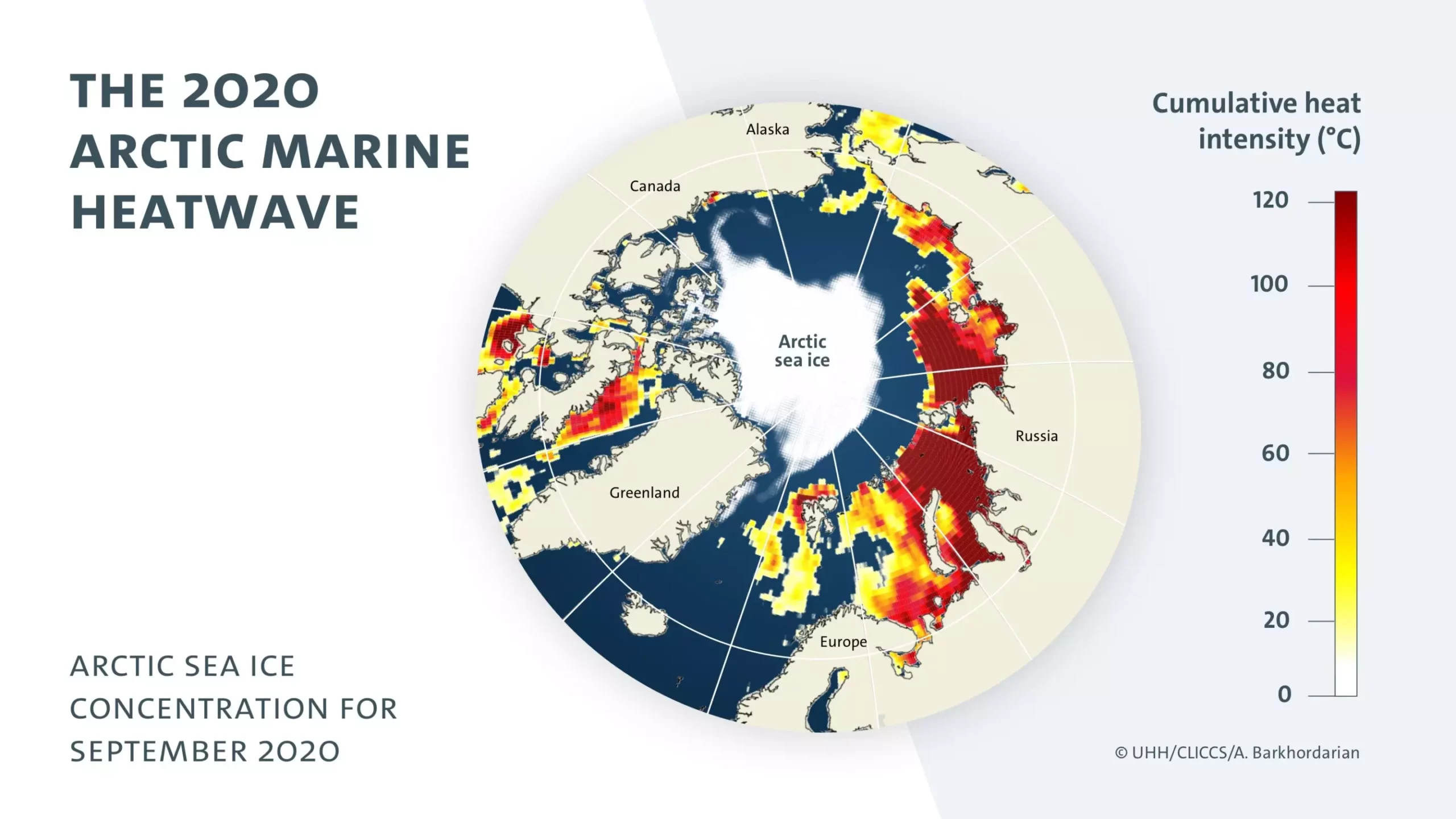

A recent study conducted by Dr. Armineh Barkhordarian from Universität Hamburg’s Cluster of Excellence for climate research CLICCS has revealed alarming findings about the future of the Arctic. The study suggests that marine heat waves, a phenomenon directly linked to higher anthropogenic greenhouse-gas emissions, will become a regular occurrence in the region. Since 2007, there has been a noticeable shift in Arctic conditions, with 11 marine heat waves recorded in the marginal zones of the Arctic Ocean between 2007 and 2021. These heat waves resulted in an average temperature increase of 2.2 degrees Celsius above the seasonal norm and lasted around 37 days on average.
What is even more concerning is that since 2015, the Arctic has experienced marine heat waves every year. The most severe heat wave to date occurred in 2020, lasting a staggering 103 days and reaching peak temperatures four degrees Celsius above the long-term average. Dr. Barkhordarian’s team at CLICCS has calculated that the likelihood of such a heat wave occurring without the influence of human-induced greenhouse gases is less than 1%. These findings significantly narrow down the possible climate scenarios for the Arctic and paint a grim picture for the region’s future.
Dr. Barkhordarian’s study also presents an interesting insight into the factors contributing to the occurrence of marine heat waves. It has been established for the first time that heat waves are a direct result of early and rapid sea ice melting after the winter season. When this happens, a considerable amount of heat energy accumulates in the water, particularly by the time maximum solar radiation is reached in July. The shift that occurred in the Arctic in 2007 plays a significant role in this phenomenon. The region now experiences a decline in thick, several-year-old ice and an increase in thin, seasonal ice. Unfortunately, the thin ice is less resilient and melts at a faster rate, allowing solar radiation to warm the water’s surface.
The implications of these marine heat waves are not limited to rising temperatures alone. Dr. Barkhordarian warns that the constant loss of sea ice and the resulting warmer waters can have devastating effects on the Arctic ecosystem. The disruption in the food chain, reduction in fish stocks, and overall decline in biodiversity are just a few of the potential consequences. The delicate balance of this unique ecosystem is at risk, and urgent action is needed to mitigate the effects of climate change.
The Arctic region is facing a dire future as marine heat waves become an increasingly common occurrence. The study conducted by Dr. Armineh Barkhordarian sheds light on the link between rising temperatures and anthropogenic greenhouse gas emissions. The findings indicate that these heat waves are directly influenced by the rapid melting of sea ice, which in turn accelerates the warming of the water’s surface. The consequences for the Arctic ecosystem are severe, with potential disruptions to food chains, reduced fish stocks, and a decline in overall biodiversity. It is crucial that immediate measures are taken to address climate change and its impact on the Arctic to protect this delicate and invaluable ecosystem.
In the world of pharmaceuticals, innovation often hinges on finding new compounds that can lead…
In the heart of the Amazon basin, drastic climate changes present an alarming reality that…
Air fryers have rapidly surged in popularity, captivating home cooks and culinary enthusiasts alike. When…
In an era where technology and social media reign, the importance of sleep often takes…
In an era where environmental consciousness is paramount, the maritime industry has long been scrutinized…
Radionuclides, often relegated to discussions surrounding nuclear energy and radioactive waste, have far-ranging implications for…
This website uses cookies.